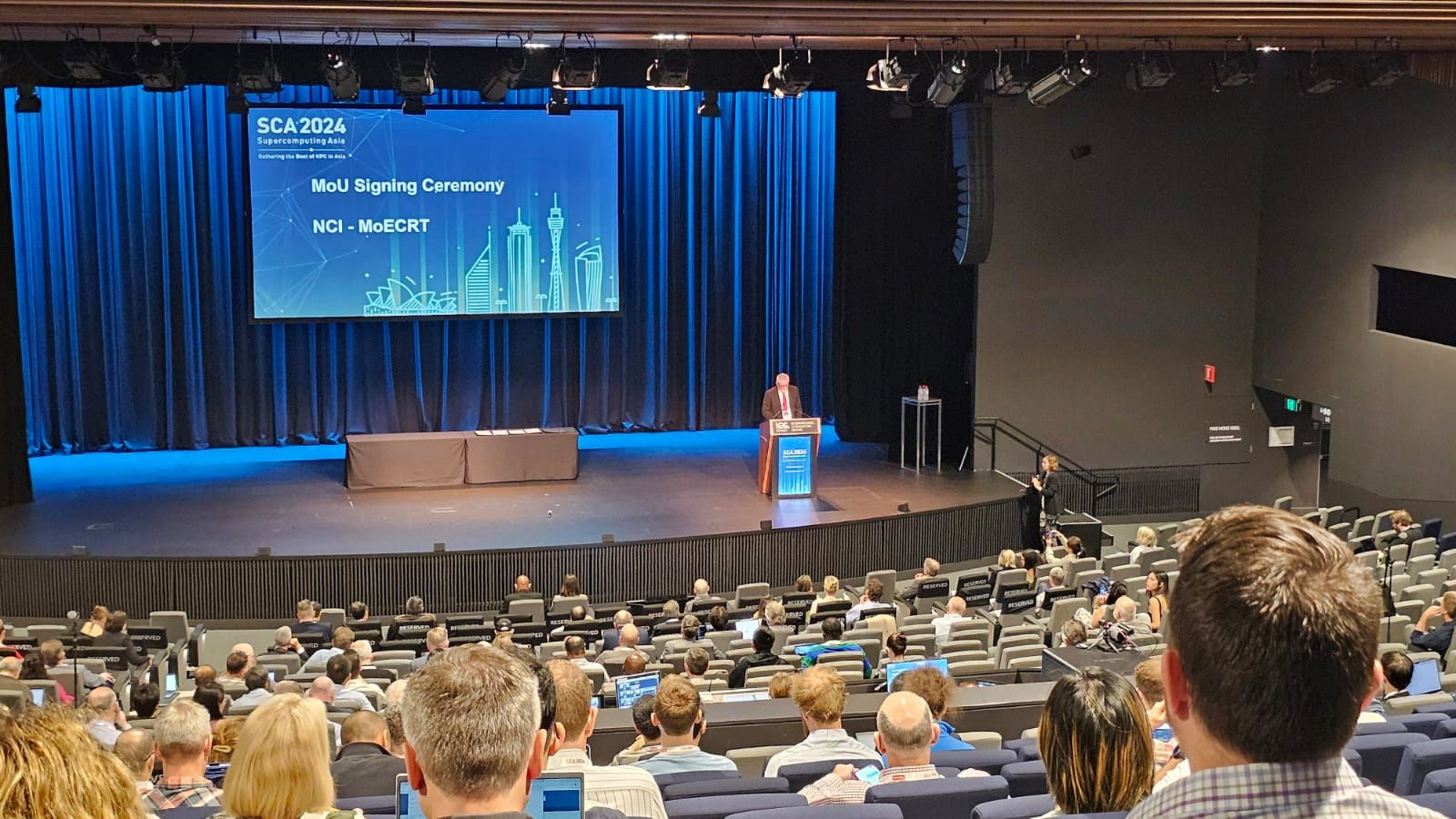Supercomputing Asia 2024 Summary
Supercomputing Asia 2024 was held in Sydney from the 19th to 23rd of February with over 1,000 attendees, most of whom were from Australia, the United States, Singapore, Japan, Thailand, and Aotearoa New Zealand, with a notable exception from the conference was China given their importance to both supercomputing and Asia, and one speaker noted wryly that "Australia is now apparently part of Asia". The program consisted of plenary sessions in the morning and multiple streams in the afternoon of each day. My attendance was at the IBM Storage Scale User Group for the entirety of the first day, the HPC Leadership Forum on the second, Skills and Training on the third, and the Accelerated Data Analytics and Computing Institute (ADAC) symposium on the fourth. The Storage Scale User Group was useful for a roadmap of their systems (e.g., IBM Storage Scale System 6000, Fusion HCI) and case studies. The Leadership Forum and the ADAC symposium both gave an overview of some of the major systems in the region, which included the two largest systems, Frontier (no 1), Aurora (no 2), along with Fugaku (no 4).
Of note from Fugaku was a Hyperion study on their macroeconomic return on investment for their HPC which was between $63 to $91 per dollar invested, following the 2013 IDN study of HPC in general indicating $44 per dollar invested. The larger figure is explained because of the tighter integration with national objectives in the peak system. Also of note, a concurring with a report written in September 2022 ("Microprocessor Trend Usage in HPC Systems for 2022-2023") was the rise of systems using AMD CPUs and the ubiquity of CPU/GPU heterogeneity. Thailand's Supercomputing Centre of note, rising from a relatively small system to one with 31744 AMD CPUs, 704 A100s, and no 94 in the top500 with 50% of their operating revenue now coming from fee-for-service from "national interest" private industries. In Australia, there is the leadership from NCI in developing the Indo-Pacific Exascale Consortium, modelled after the EuroHPC Joint Undertaking effort.
About 50 people attended the talk I gave at SCAsia 2024 on "HPC Certification Forum & Skill Tree: An Update". There was quite an enthusiastic discussion that followed with several questions about micro-credentials, the potential use of OpenBadge as part of the certification process, and strong interest from several other HPC centres (UWA, CSIRO, NeSI) and Intersect in participating eco-system approach about using the skill tree approach for training content and contributing back. The potential of this sort of collaboration within Australia at the very least will be extremely valuable in improving the HPC on-boarding process for researchers. The talk also dovetailed with a poster presentation, "HPC Training Generates HPC Results", which pointed out longitudinal correlations between the two in terms of training sessions, computer hours, and job completion.
Running topics of note throughout the conference and especially in the plenary sessions (a nice quirk was that the voice of Siri, Karen Jacobsen, was the MC for these sessions), was a focus on AI/machine learning/LLMs and quantum computing. The former topic especially noted the advantages of GPUS which bodes well for our own large GPU partition. Differentiation must be considered between quantum computing and quantum computers; as a recent Spartan-citing paper pointed out quantum algorithms on "classical" computers (e.g., HPC) are preferable to quantum computers which are very much still in the experimental phase. To differentiate, quantum computing is any method to generate quantum effects whereby qubit states can exist in superposition (0,1, both) rather than binary states (0,1). The typical system to do quantum computing, or at least simulate it, is usually HPC. In contrast, a quantum computer uses a system that directly uses a quantum system. For example, GENCI in France uses a photonic computer, LRZ in Germany uses superconducting qubits, PSNC in Poland uses trapped ions, etc.
Opportunities to speak with vendors is always important and in particular longer discussions were held with Dell with their roadmap, DDN on their new filesystem, and Altair's HPCWorks application (which, at the moment, only operates with PBSPro). Notably, many vendors continue to make a pitch in favour of monopolisation under the guise of convenience ("we'll do everything for you") rather than interoperability. Special thanks are given to Xenon Systems for an evening hosted at L'Aqua on Cockle Bay Wharf.
Overall, attendance and participation at the conference were extremely valuable for direct knowledge improvements in storage, useful collaborations with other centres for HPC training, awareness of vendor products, system developments in Asia and US, and developing an understanding of the overall direction of AI/LLM and quantum computing in HPC environments.

Image by Picture by Robert Lageano
